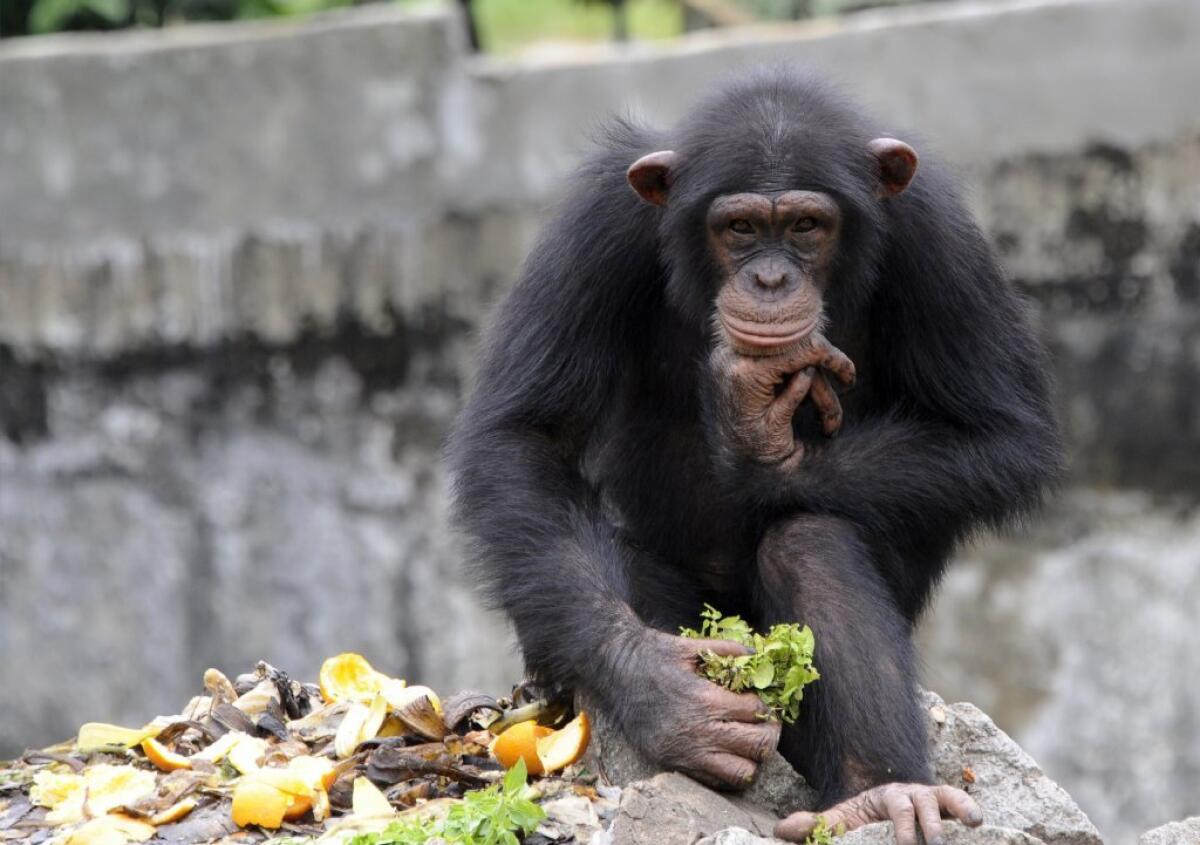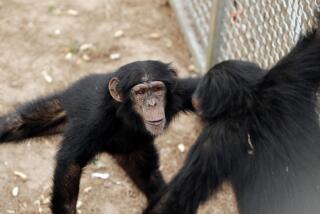In-gene-ious? Chimps inherit much of their intelligence, study finds

If you’re a chimp, the smarts you have are in large part the smarts you were born with, according to a new study that put 99 chimpanzees through a battery of intelligence tests.
The findings, published in the journal Current Biology, show that many cognitive abilities are strongly influenced by genetics — and may help shed light on the rise of intelligence in humans.
Research into human IQ has shown that children do indeed inherit their intelligence levels from their parents, the study authors wrote — but that intelligence can be “modified by nongenetic mechanisms” like socioeconomic status. Studying animals, however, can provide insight into the genetic basis of intelligence without those confounding factors that crop up in human cases.
For this study, researchers from Georgia State University in Atlanta took 99 captive chimpanzees ages 9 to 54 and subjected them to 13 different IQ tests spanning a range of different cognitive abilities, from communication skills to spatial reasoning and tool use.
For example, in a sort of shell game, they challenged chimps to remember which of three containers hid a tasty morsel of food. This task tested their spatial memory. Researchers also put some food out of reach and waited to see if the chimps could successfully get a human to help them get it — a test of communication skills.
The scientists ran the chimps’ performance against a number of potential confounding factors, including the animals’ sex, age and rearing history and found that genetic differences appeared to account for 54.2% of intelligence — a slight majority of a given chimp’s smarts.
But nature didn’t trump nurture in all aspects of intelligence: The genes didn’t seem to play a strong role across all of the 13 different cognitive abilities tested. Cognitive abilities involving spatial memory, communication and attention state (among others) seemed significantly inheritable, while skills such as tool use were not.
There could be very good evolutionary reasons that spatial memory and communication skills were inheritable, the study authors wrote.
“Presumably, these attributes would have conferred advantages to some individuals, perhaps in terms of enhanced foraging skills or increased social skills, leading to increased opportunities for access to food or mating,” the study authors wrote. “These individuals would have then potentially had increased survival and fitness, traits that would have become increasingly selected upon during primate evolution.”
Follow @aminawrite for more fascinating research from the animal world.







